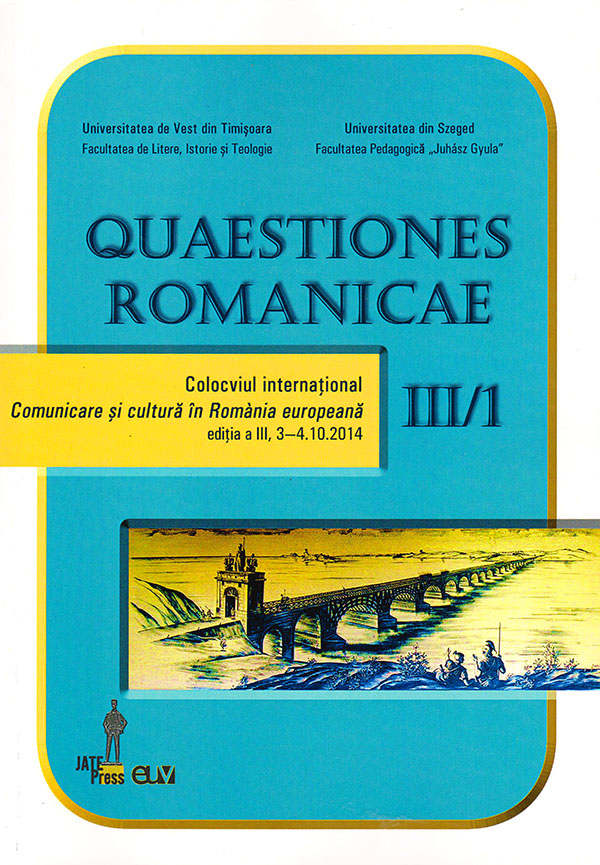Pagini de proză scurtă – critici intermitente ale unei realități
Abstract: (Pages of Short Stories – Discontinuous Criticism of a Reality) It is known that a short story is the discourse type adopted by Postmodernist writers. In this paper we develop this idea, having as purpose to demonstrate that Marin Sorescu’s prose is similar to the postmodern short stories. The fact that Marin Sorescu wrote short stories in a period in which the postmodern paradigm was becoming visible determines us to debate the writer’s being considered a modernist and to consider him a postmodernist, who began to write in the 60s, but who wrote prose in the 60s and 70s, being conscious about the changes in literature. Moreover, he was the promoter of new techniques. In his short stories, Marin Sorescu drew a sketch of the communist social environment; at the forefront: the obsessive and chaotic urbanization, the endless queues, the peril of being watched; subsidiary: the criticism. The reality fragmented in episodes from the lives of students, writers, “intellectuals” took the form of texts in the 60s and 70s, but most of the narratives published with the title Short stories are dated with the year 1955. Marin Sorescu describes a common, trivial and material background, without any stylistic exaggerations, without elitism. In his prose the characters are sometimes fully attached to one another; otherwise the notions: collectivity, meeting, council, mates would be annulled. Thus, we mostly deal with collective characters. The street or the queue also become characters and the core of a totalitarian society.
Keywords: Postmodernism, short stories, criticism, Communism, collectivity.
Rezumat: Este cunoscut faptul că proza scurtă este tipul de discurs literar adoptat de postmoderni. În această lucrare ne propunem să dezvoltăm această idee, urmând să argumentăm ideea că proza lui Marin Sorescu prezintă asemănări cu scrierile postmoderne. Faptul că Marin Sorescu a scris proză scurtă într-o perioadă în care paradigma postmodernă lua contur ne determină să problematizăm încadrarea scriitorului în modernism și să-l considerăm un scriitor postmodern, care a debutat în anii ’60, dar care a scris în anii ’70-’80, fără a fi străin de schimbările din planul literaturii. Mai mult chiar, el însuși a deschis noi drumuri. Marin Sorescu a scris un tip de proză scurtă, care schițează mediul social comunist; în prim plan: urbanizarea obsesiv-haotică, cozile interminabile, iminența actului de a fi turnat; în subsidiar: critica. Realitatea fragmentată în episoade din viața unor studenți, scriitori, „intelectuali” a luat forma textelor în anii ’60-’70, multe din narațiunile publicate sub titlul Proză scurtă fiind datate: 1955. Marin Sorescu prinde în rama textuală un spațiu mărunt, banal, concret, descris fără exagerări stilistice, fără elitism. În proza scurtă a lui Marin Sorescu apar și personaje care nu se pot desprinde unele de altele pentru că s-ar anula noțiunile: colectivitate, ședință, consiliu, tovarăși, astfel că avem de-a face, mai degrabă, cu personaje colective. Strada sau coada devin, de asemenea, personaje în jurul cărora se conturează întregul background totalitarist.
Cuvinte-cheie: postmodernism, proză scurtă, critică, comunism, colectivitate.
